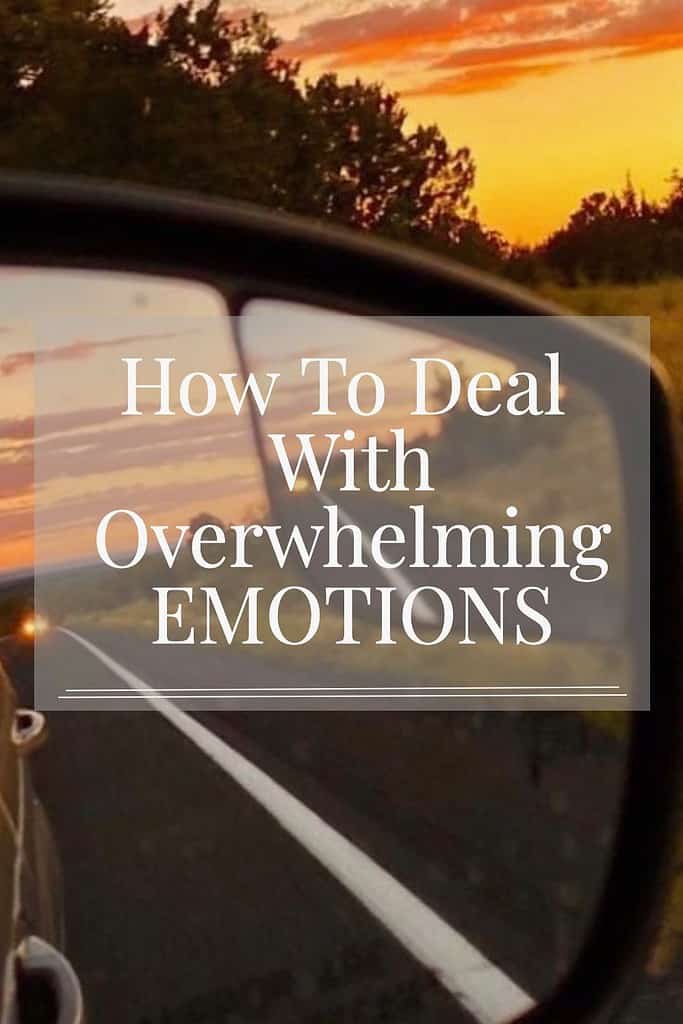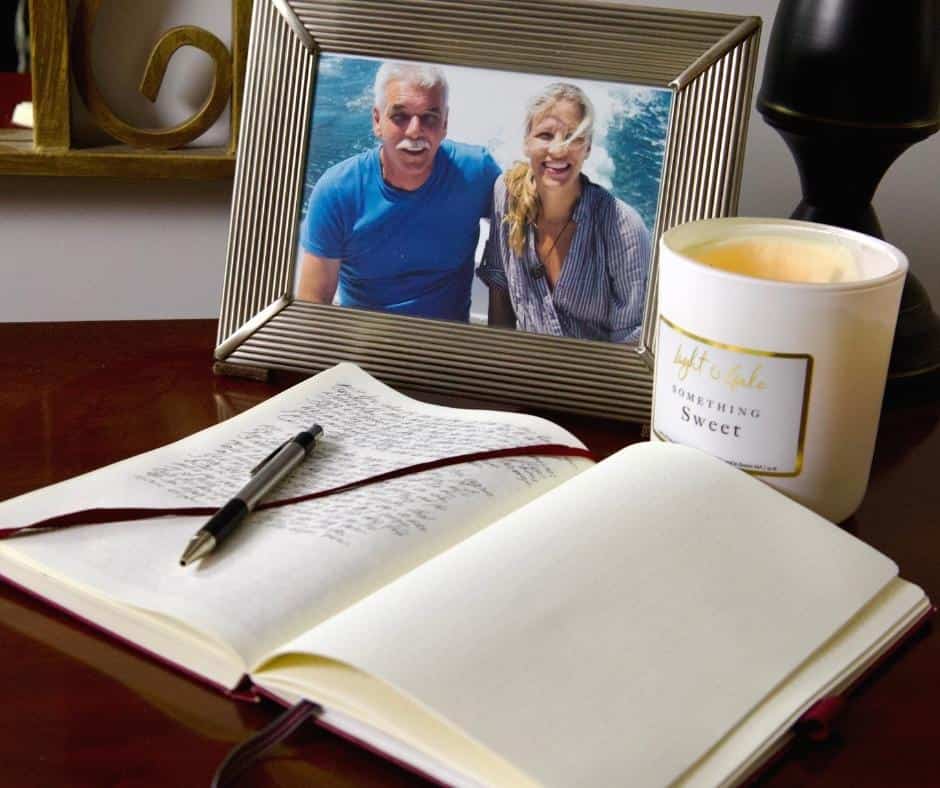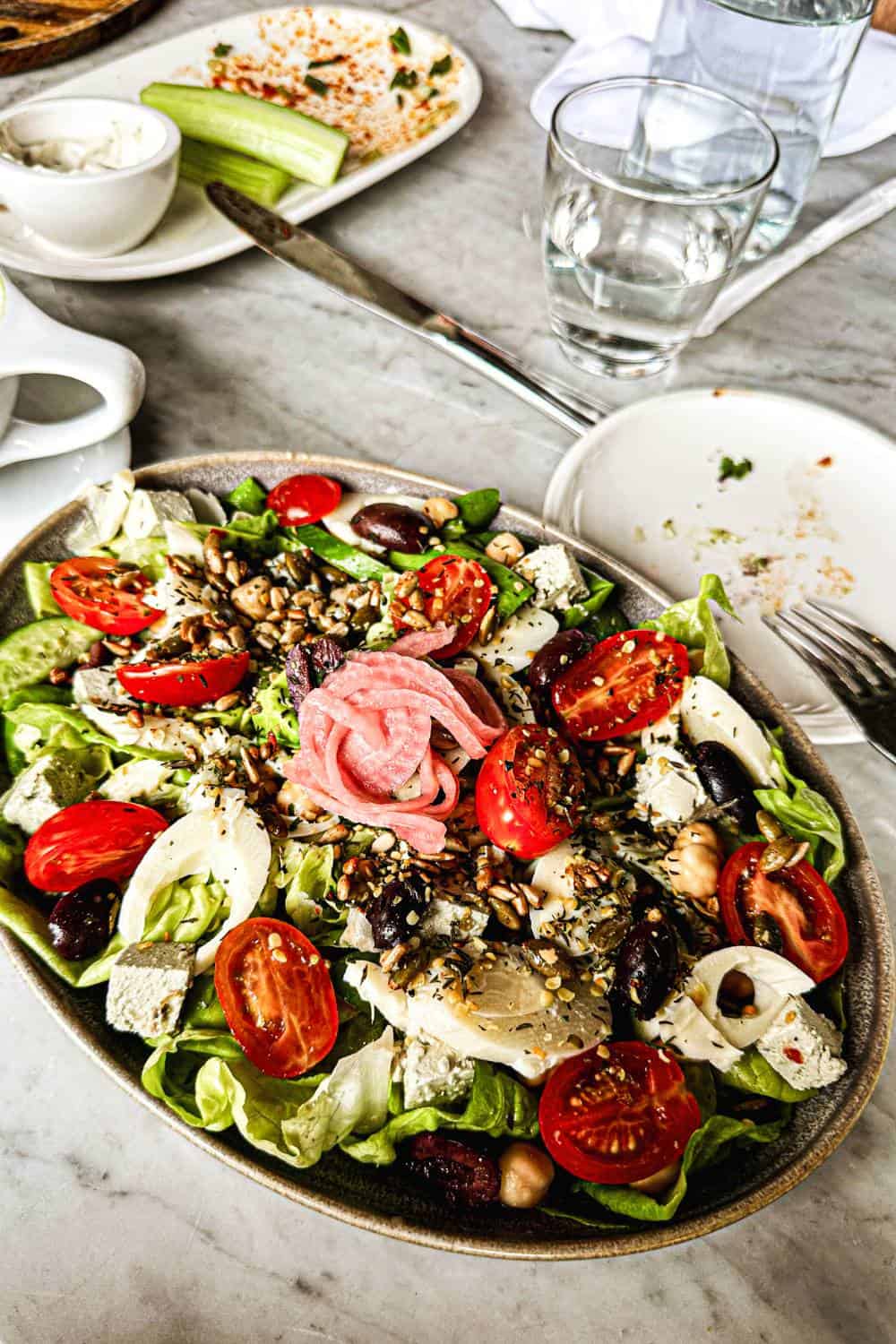How To Deal With Overwhelming Emotions As A Caregiver
Caregiving is rewarding but negative feelings can sometimes arise. This is normal, so we mustn’t let it get to us with feelings of guilt or shame. But it is important to learn how to deal with overwhelming emotions in a healthy manner.

This post may contain affiliate links, which means I make a small commission at no extra cost to you. Please view the Disclaimers below for full disclosure. Thank you in advance for your support.
There are many different ways to manage emotional overwhelm, so let’s talk about how to deal with overwhelming emotions in a healthy way as a busy caregiver.
As a caregiver taking care of my guy with Parkinson’s, intense emotions, and admittedly negative feelings, can sometimes creep into my psyche. I try to be kind to myself and let these overwhelming feelings pass through me, like rushing water over rocks in a waterbed, thinking “This too shall pass.” But it is not always easy.
Intense emotions can be hard to manage sometimes, especially when we are already feeling physically fatigued and tired.
The Emotional & Physical Health Connection
Experiencing strong feelings, in particular negative emotions, can sometimes affect our physical health. I’m sure at some point you have experienced a stomach ache when you were feeling nervous or a headache when stressed.
That is no coincidence. Our bodies are designed as a whole, so when we are experiencing a traumatic event, or feeling intense overwhelming emotions, our bodies are going to physically react.
Research shows there is a connection between intense emotions and disease, and it has been found that anxiety, depression, and anger can be risk factors for coronary heart disease.
Negative difficult emotions can also lead to a low tolerance or an increased and exacerbated, sense of pain. But the good news is, the reverse is also true. Positive emotions can lead to increased tolerance and a potentially decreased sense of pain.

How To Deal With Overwhelming Emotions Healthfully
When we are in a difficult situation, and our emotional responses are always seeming to be negative, don’t let this be your breaking point. The best thing you can do is take a few deep breaths, and realize you are not alone.
Overwhelming emotions happen to all of us, and this is not a bad thing in and of itself.
The important thing is to address your emotions and not stuff them down and let them simmer within you. This is when things can go awry.
Healthy Tools For Dealing With Emotional Overwhelm
Let’s look at some tools to help us deal with overwhelming emotions in a healthy manner.
- Deep breathing – a great way to almost immediately help us connect back to our bodies whenever we are experiencing heightened emotions, is to take a few deep cleansing breaths.
- There are a lot of different methods of breathwork, but one of the easiest methods is called “box breathing” or the “4-4-4-4 method”.
- Breathe in for a count of 4, and hold for a count of 4. Then purse your lips and breathe out for a count of 4, and hold for a count of 4. Hence the box method with a box having four sides to it.
- Progressive muscle relaxation – this is a powerful relaxation technique and a productive way to ease the stress and anxiety of our body.
- All it entails is tightening, or clenching, parts of your body for 10-15 seconds, and then releasing the tension and relaxing.
- You can start either at the top of your head and work downward, or in reverse by starting at your toes and working all the way up to your head.
- The important thing is to do one body part at a time and slowly work your way down, or up, the body.
- Journaling – is one of my favorite techniques. Keeping a journal is a wonderful tool to help combat overwhelming emotions. For me, it helps stop the swirling thoughts running through my brain whenever I am feeling emotional and tense.
- Journaling is as easy as writing your thoughts and feelings down on paper. So grab a notebook, or a piece of paper and start writing! Don’t overthink things, just write. Big things, small things, and everything in between.
- There is no right way to keep a journal. Personally, I use my journal as a type of prayer journal. Talking directly to God and getting things off my chest.
- If you’d like to know more about how I journal, you can read about it, and watch my YouTube video here.
- Sleep – sleep is a wonderful way to help your body physically handle the mental and emotional overwhelm that occurs occasionally as a busy caregiver. Sleep triggers the body’s relaxation response, helping to reduce the stress hormone cortisol as well as other stress hormones.
- Walking – walking is another great way to reduce stress and overwhelming emotions. Walking in nature helps us stay in the present moment and activates the parasympathetic nervous system, which then helps to reduce our blood pressure and heart rate, and put us in a more relaxed state.
- Professional help – if you find that you are experiencing emotional overwhelm to the point where you do not feel like you can help yourself get back into a healthy state of mind, please do go seek a professional to help you cope.
- There is absolutely nothing wrong with getting some professional advice, and it does not make you weak or small. If anything, good for you for taking such good care of yourself!
- Personally, I feel every caregiver should have a competent therapist on call, or at least at the ready in case they are needed. Caregiving is beautiful and rewarding but can be extremely challenging and draining emotionally at times.
- Do not think twice about seeking professional counseling if your emotions get too overwhelming and you are having difficulty coping.
- Also, consider online therapy. Since covid, professional counseling online is growing. I have clients who work with therapists online, and they rave about them. It’s just a matter of doing your research and finding one you connect with.
- HERE is the organization a few of my clients use. Also, you can get $100 off your first month just by clicking this link if you are interested.
All of these are key factors that help our emotional regulation, and they support our emotional needs as well. Taking care of our needs is also a very important step towards emotional intelligence.

Unhealthy Coping Mechanisms For Emotional Overwhelm
We all have coping mechanisms to help us manage overwhelming emotions.
Some of these mechanisms can be a productive way to manage overwhelming thoughts and feelings of stress. But other coping mechanisms can be destructive and unhealthy.
Stressful situations are inevitable but we don’t want to be led by traumatic experiences, or by established defense mechanisms that may not be healthy.
Here are examples of unhealthy coping mechanisms during times of distress.
- Screen time – we all love to relax in front of our screens – either the television, laptop, phone, or even a gaming console. However, when we are spending a lot of time in front of a screen to distract ourselves from our emotions, well that isn’t a very healthy coping mechanism.
- Social media – spending a lot of time distracting ourselves on social media is all a part of lengthy screen time. Looking at and comparing our lives to those glamorous social media accounts does us no favors. It is best to face those emotions, go for a walk, and keep gazing at social media to a minimum.
- Video games – Again, another part of extended screen time. Once one starts gaming, it’s super easy to just keep playing! So please be mindful of your gaming/screen time.
- Food – food as a coping mechanism is tricky because we need to eat to fortify ourselves but the difference is, are we doing it with nutrient-dense food or highly processed sugary junk food?
- It’s very easy, in the heat of the moment, to grab unhealthy comfort food, but over time this sets up an unhealthy coping mechanism – both for your physical and emotional health.
- Alcohol and recreational drugs – these are all too common for people to use as unhealthy coping mechanisms in regard to dealing with powerful emotions.
- I am not here to judge whether you do or do not drink or use recreational drugs but if you are using them on a daily basis, or you feel a deep need to use them in order to cope, well those definitely can be some red flags.
- These coping mechanisms are not a good idea long term, and they can have some real negative consequences.
So the next time you are struggling with overwhelming emotions, avoid catastrophic thoughts and an emotional meltdown. The first thing to do is pause, take a moment to breathe, and use one or two of the healthy coping mechanisms to take charge of your life.
Use the key steps and tips outlined above as a helpful way to reduce the emotional overwhelm, and create good memories in your daily life.
More healthy lifestyle tips to support caregivers
JUST FOR YOU – FREE Summer Essential Oil Blend Recipes
I’ve created some beautiful essential oil blends over the years to use in diffusers all around my home and in my car. Here are some great summer blend recipes just for you!
Let’s be social
If you enjoyed this post, I would love it if you give it 5 stars or comment below, and do not hesitate to share it with someone whom you think might benefit. Thank you in advance.
And if you wish, you can follow me and my life on Cape Cod, on my Instagram page @parkinsons_and_us.





